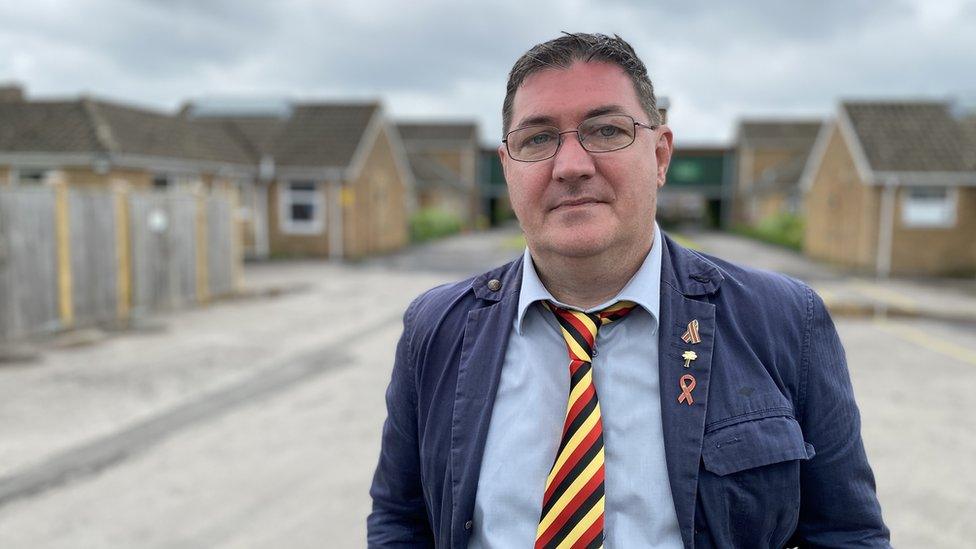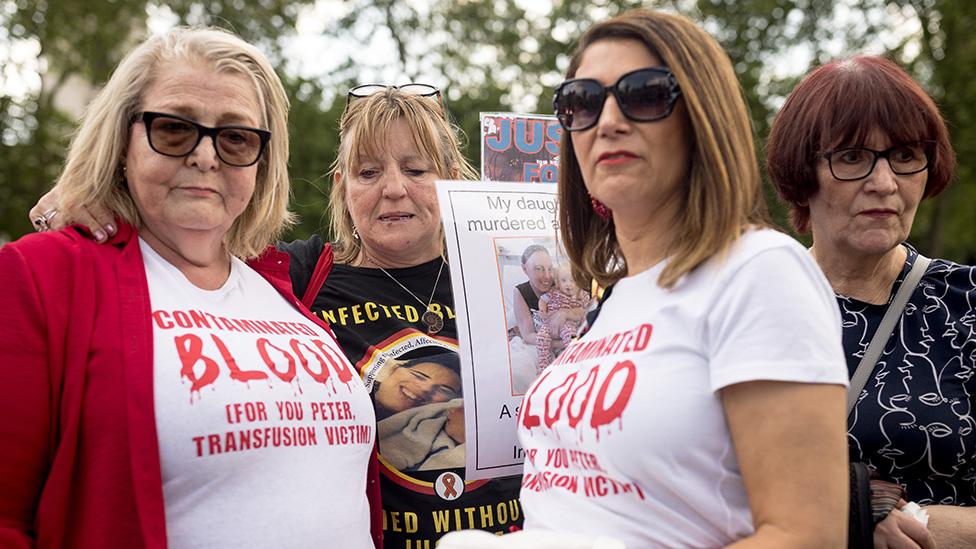East Yorkshire infected blood victim not alive to see inquiry end
- Published
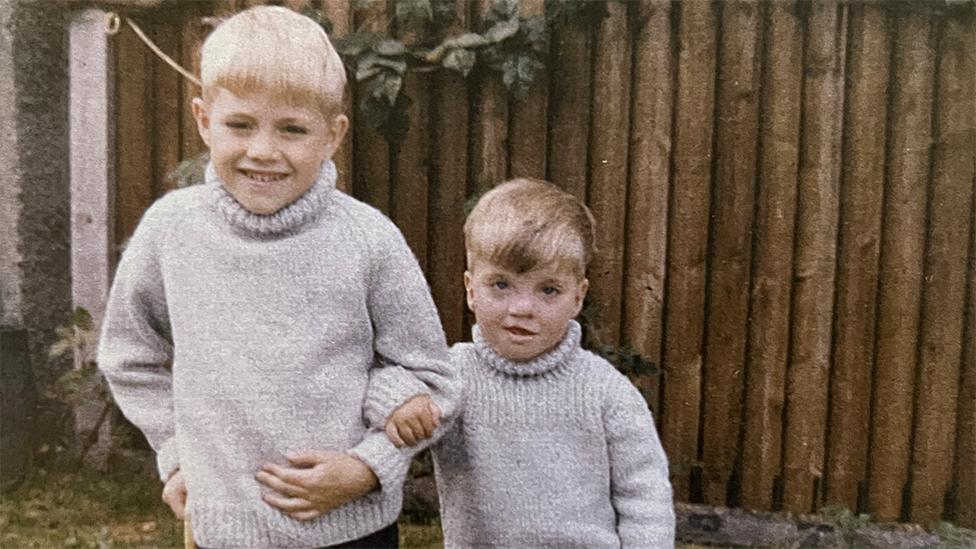
Phil Sainsbury, left, said his brother Nick "would have liked to have heard" the inquiry's findings
The family of an East Yorkshire man given contaminated blood products as a child say they are sad that he did not live to see the end of an inquiry.
Nick Sainsbury had severe haemophilia, but his medicine left him infected with HIV and hepatitis C.
He died last year at the age of 59, after giving evidence to the infected blood inquiry.
His brother, Phil Sainsbury, said they are upset that he passed away before the inquiry could report its findings.
"It's so sad because we're thinking Nick would have liked to have heard this and obviously he's not here to do that," he said.
"It's just something that we're trying to come to terms with ourselves."
The government inquiry, led by former judge Sir Brian Langstaff, is due to publish its report on 20 May, 2024.
The Haemophilia Society believes 650 people infected with contaminated blood products, or their bereaved partners, have died since the inquiry was announced in 2017.
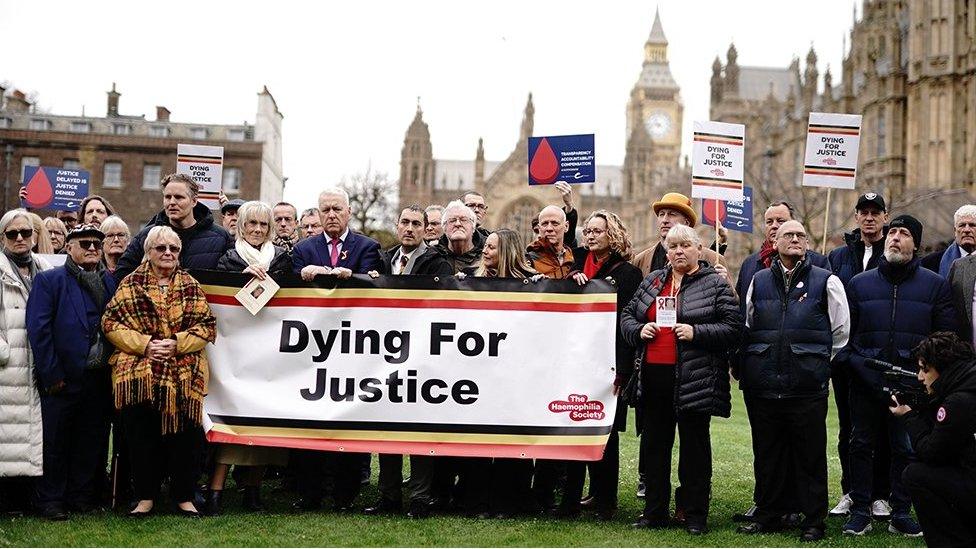
The infected blood inquiry was set up in 2017
More than 30,000 people in the UK were infected with HIV and Hepatitis C after being given contaminated blood products in the 1970s and 1980s.
Haemophiliacs, who have a rare genetic condition which means their blood does not clot properly, were given clotting agents made from donated human blood plasma.
In the 1970s, the UK was struggling to meet the demand for blood-clotting treatments so imported supplies from the US.
But much of the blood was bought from high-risk donors, such as prison inmates and drug-users, and contained deadly viruses like HIV and hepatitis.
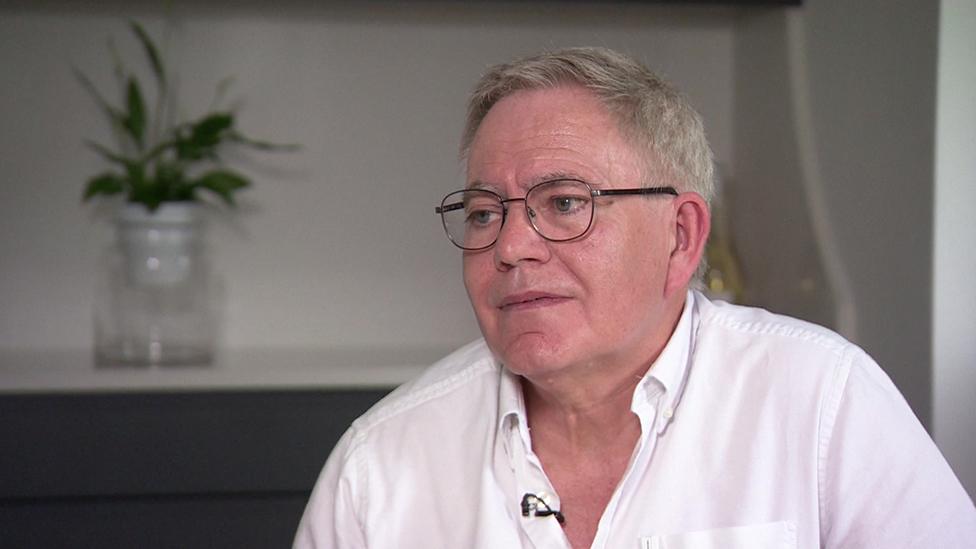
Phil Sainsbury said his brother's death had prevented the family getting "total closure"
Mr Sainsbury said his brother's death had prevented Nick and his family getting "total closure".
"In his last few years he was in a wheelchair most of the time," he said.
"He would definitely have got to the hearing on 20 May come no matter what.
"I would have been there with him and now I feel that without him there isn't a final result for us."
A Government spokesperson said: "This was an appalling tragedy that never should have happened.
"We are clear that justice needs to be done and swiftly, which is why we have acted in amending the Victims and Prisoners Bill.
"This includes establishing a new body to deliver an Infected Blood Compensation Scheme, confirming the Government will make the required regulations for it within three months of Royal Assent, and that it will have all the funding needed to deliver compensation once they have identified the victims and assessed claims."

Follow BBC East Yorkshire and Lincolnshire on Facebook, external, X (formerly Twitter), external, and Instagram, external. Send your story ideas to yorkslincs.news@bbc.co.uk, external
Related topics
- Published9 May 2024
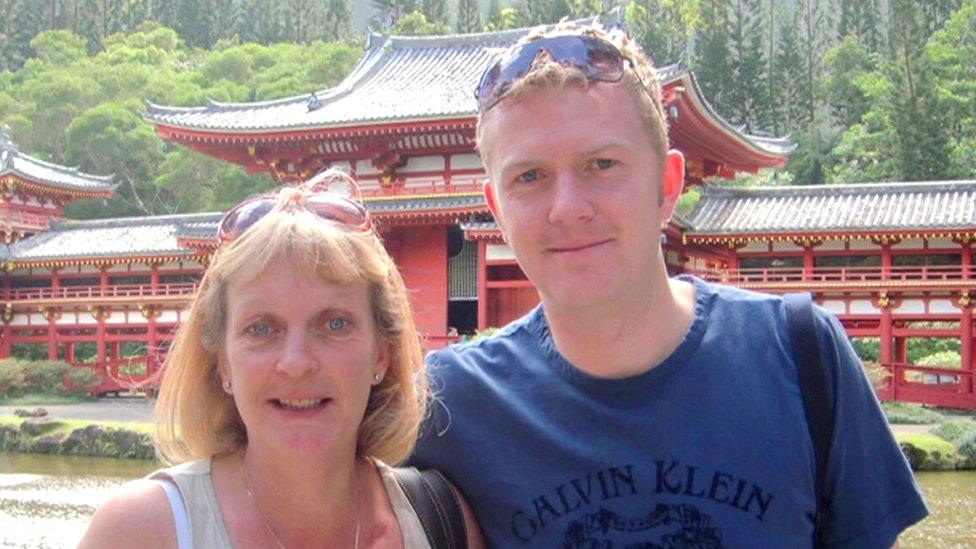
- Published21 June 2021
